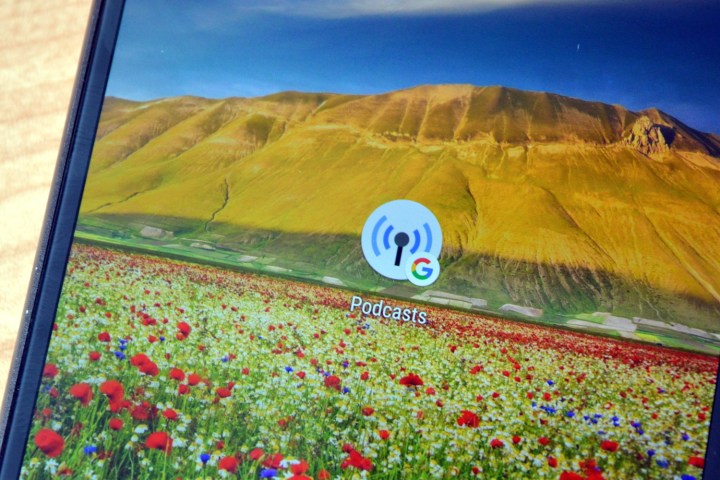
After introducing podcast support for Google Play Music back in 2016, Google has finally launched a stand-alone podcast app called — you guessed it — Google Podcasts.
At the moment, Podcasts is a little bare when compared some of the other leading podcast apps — but with Google’s full might behind it, the updated Material design, and some nifty Assistant-based tricks, there are a good few reasons to give Podcasts a go on your usual commute.
Fully immersed in Google’s ecosphere
Most of Google’s apps now have some form of interconnectivity with Google’s other services, and Podcasts is no exception. Podcasts is fully integrated with Google Home and Google Assistant, so if you’re home and listening to a podcast, you can ask Google Assistant to pause and resume your playback. The Assistant is also able to start specific podcasts for you, and if you’re feeling like a change, commands like “play me a funny podcast” will let
As you might expect, there’s also a heavy emphasis on your personal algorithm. That’s not as chilling as it might sound — it just means the app will recommend you specific podcasts based on your tastes. As it learns more about the types of podcasts you like, expect to hear better recommendations. With more than 2 million podcasts available and more on the way, Google’s got plenty to recommend.
Pick up where you left off, and other features
The worst part about changing podcast apps is getting all your subscriptions set up again. Thankfully, if you already used Google Play Music for podcasts your data will carry straight over into Google Podcasts, and you’ll be able to pick up right where you left off. If you listen on multiple devices — a tablet in the kitchen and your phone for the commute, maybe — Podcasts will also sync progress across those devices, so you can resume your place from wherever. The syncing happens automatically, so there’s no need to do anything special.
Aside from that, Podcasts is fairly barren. The Settings menu allows users to dictate how long finished and unfinished downloads remain on your device, but there’s precious little else yet. While you’re listening to a podcast, you can alter the playback speed, and the option to trim silent periods is apparently rolling out. However, apart from those options, there’s not much else.
What’s coming up?
But just because there’s not much there now doesn’t mean it’ll stay that way. Google’s planning a bunch of extra features for the Podcasts app, and it looks as if it’s most into adding completely new ideas we’ve never seen before in a podcast app. These ideas include using A.I. to add closed captions to podcasts — perfect for noisy areas — and the eventual addition for real-time podcast translations, so you’re not limited to podcasts in languages you understand.
Google has already expressed an interest in expanding the world of podcasts, but it seems that it’s not just going to stop at launching a stand-alone app. Google wants to use its influence to increase the number of podcasters in the world, and has specifically shown an interest in increasing the number of female and minority podcast hosts. To that end, Google has set up an independent advisory board that aims to promote the production of podcasts outside of the usual areas of the U.S.. What does that mean in real terms? Google doesn’t seem to be sure, but it seems that it’s more likely to be increased promotion, rather than direct financial contributions to individual podcasters.
The Google Podcasts app is currently available on the Google Play Store. While there’s been no overt intention of launching an app on iOS, you can use the Google Assistant for iOS to listen to podcasts in a more roundabout way. If you’re stumped as to which podcast to start with, check out our very own podcast, Trends with Benefits.
Updated on June 26: We’ve added the latest news and updates, and added some screenshots of the app.
Editors' Recommendations
- The Google Pixel 8a price just leaked. Here’s how much it’ll cost
- Google just released the first Android 15 beta. Here’s what’s new
- Check your Google Pixel Watch right now for two new features
- Have one of these Google Pixel phones? You’re getting Circle to Search
- Google Pixel 9: news, rumored price, release date, and more





